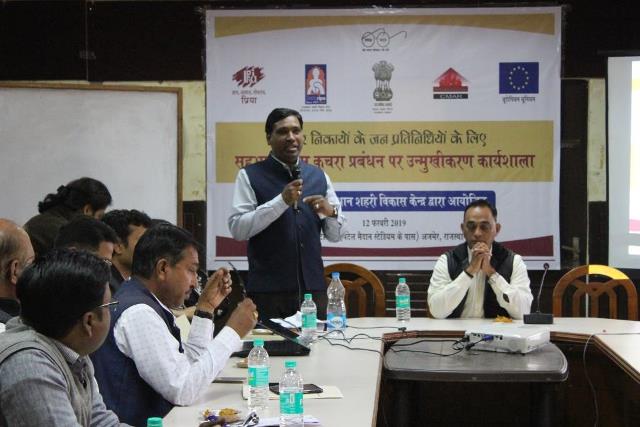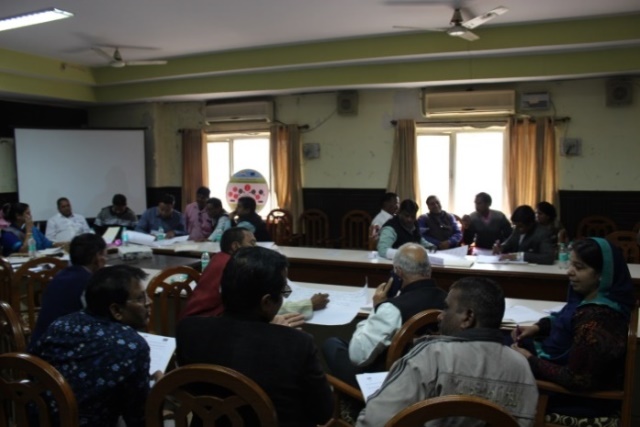| Date 12-Feb-2019 to 12-Feb-2019 |
Location Ajmer |
Format Local |
PRIA in association with the Local Self Government Department Rajasthan, HCM-RIPA (Rajasthan State Institute of Public Administration) and City Managers' Association Rajasthan organized a one day orientation training workshop for elected representatives of urban local bodies. The workshop was attended by 31 elected councillors from 5 ULBs of Beawar, Vijainagar, Parbatsar, Kekri and Ajmer. The Mayor of Ajmer Nagar Nigam and Chairpersons of Beawar Nagar Parishad and Parbatsar Nagar Palika also participated in the orientation workshop. The program was structured in 3 interactive sessions focusing on rapid assessment, processes & methods of solid waste management and roles & responsibilities of elected representatives.
In his address, the mayor of Ajmer Nagar Nigam, stressed on the need of systems and options for efficient solid waste management. He expressed that there had been a significant change in the solid waste management system, under SBM (Urban) but awareness needed to be improved. As a part of rapid assessment, in the first session, the participants highlighted issues like lack of awareness among children, spreading of waste collected by animals, lack of segregation etc. The need for a solid waste management system was established through developing an understanding of the connection between sanitation-health-environment. The session helped in acknowledging the issues related to solid waste management and their importance.
The second session covered a basic understanding about the existing situation in towns through the use of solid waste flow diagram. For this session, all the participants were divided into groups of 3. The participant groups drew lines using red and green marker pens to show desired and undesired practices prevailing in their towns and wards. In another self- learning activity, participants were facilitated to match cards on types, processes and outputs of respective waste processing methods. The facilitator of the session briefed them on the various processing methods and outputs.
The third session was on roles and responsibilities of elected councillors on solid waste management, for which 3 groups were formed. As a part of this learning-by-doing activity, participants firstly discussed on the solid waste management rule of 2016 and the role & responsibilities of elected representatives through the distribution of hand-outs. Then participants were engaged in discussions in groups on the respective topics. These topics were - 1 : framing byelaws of solid waste management at the city level based on SWM rules 2016, 2: setting up formal grievance redressal mechanism for solid waste management and 3: formalising ward sabha. The discussion within groups was followed by presentations by the groups that was guided through points given in hand-outs.
The orientation workshop was concluded with vote-of-thanks on behalf of organizers.